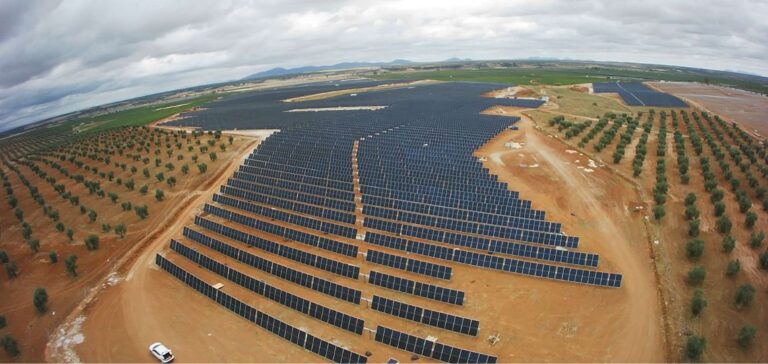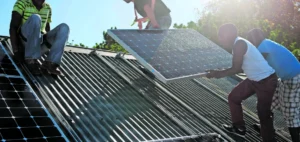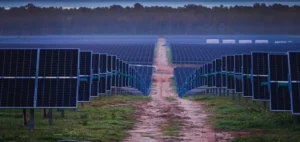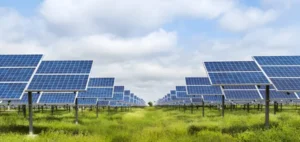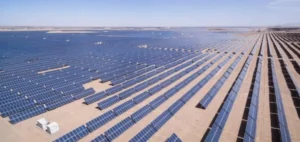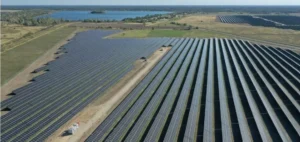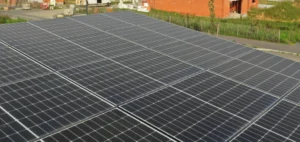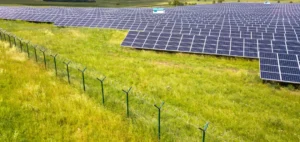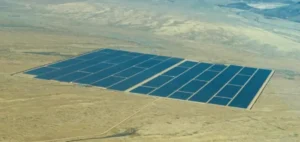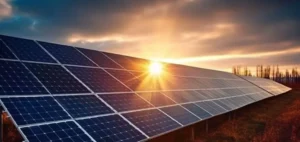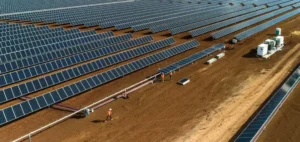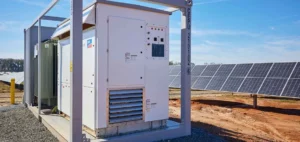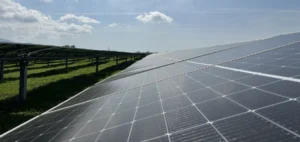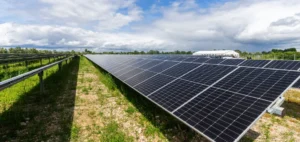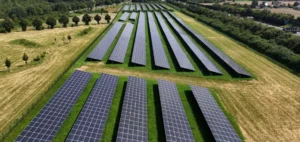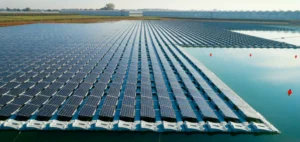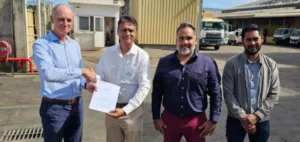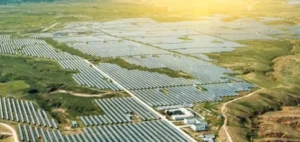Abdul Latif Jameel Energy’s subsidiary, Fotowatio Renewable Ventures (FRV), has announced the launch of San Serván 400, a cluster of three solar projects of 50 MWdp each, for a total capacity of 150 MWdp, in the municipality of Merida, Extremadura. This Spanish region is at the forefront of renewable energy in Europe and is one of the main players in the Spanish government’s long-term decarbonization strategy (PEL).
An opening ceremony was held at the site, attended by representatives of the central and regional governments, as well as other local and regional authorities. San Serván 400 is expected to produce about 300 GWh of clean energy per year, enough to power about 108,000 Spanish homes and avoid the emission of 223,000 tons of carbon dioxide (CO2).
A project for the future of Spain
The project is part of the Spanish government’s efforts to make the country a global renewable energy powerhouse by 2050. San Serván 400 illustrates the fundamental ecological transition for the development of Spain. Investments in this sector are seen as investments in the future of the country.
FRV continues to strengthen its presence in Extremadura, where it has already commissioned two more photovoltaic projects. The company is also committed to the education and training of talented young students, offering scholarships through its “Young Talented Leaders” program.
Green finance at the heart of LIF’s commitment
FRV is committed to green finance, with all its projects having the Green Financing Framework qualification. This includes green bonds, project finance, green loans, and any other financial tools applicable to projects, assets, or groups of them.
The commissioning of San Serván 400 is a testimony of FRV’s commitment to sustainable and renewable energy, which is considered a strategic pillar for the economic, social and environmental progress of future generations.

